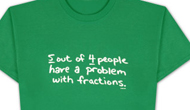 1. The Paradox of Choice. There are more choices than ever before – approaching infinite. So, people are just going to pick the best choice. Often times, it’s the first choice. Are you at the top of the list?
1. The Paradox of Choice. There are more choices than ever before – approaching infinite. So, people are just going to pick the best choice. Often times, it’s the first choice. Are you at the top of the list?
2. Time isn’t on your side. There are more thieves of time, attention and mental energy than ever before. You’re not the only important thing in your customers’ lives.
THINK ABOUT THIS: if you stopped advertising, would anybody even notice?
3. Nobody notices normal. Not any more. Now, this doesn’t mean there’s anything WRONG with being normal. However, positioning you, your business and your value as “normal” is like asking prospects to find a needle in a stack of needles.
REMEMBER: our society rewards the exceptional. And those who get noticed get remembered; and those who get remembered get business. Are you noticeable?
4. What? Huh? According to Wikipedia, the human attention span is about six seconds. Can you deliver value and pique someone’s interest in that window of time?
5. Our culture demands specialists. Being well rounded is overrated. More Narrow Focus = More Big Opportunities. Have you picked a lane yet?
6. Confusion. Most of the world does not understand what you do. The majority of service offerings are poorly defined. Plus, there’s a professional mystique to most job titles. So, don’t use jargon that alienates the public. Don’t give them a reason NOT to investigate your industry further. Are you using real, simple language?
7. BEEEEEEEEEEEEEP!!! People are bombarded every day with 3000+ marketing messages and are TIRED of being interrupted. Patience is at an all time low. And customers want music, not noise. Is your marketing interrupting or interacting?
8. It’s a GOTCHA! Culture. People just LOVE to prove others wrong, make them feel and look stupid and point out their inconsistencies. Are you maintaining consistency?
9. The limited window. According to The Wall Street Journal, first impressions are formed in about two seconds. As such, the only thing people can really make judgments about is how you made them feel in those few seconds.
QUESTION: Are you doing everything you possibly can to make this person feel comfortable engaging with you?
10. WOM Wins. Businesses grow because customers tell other customers. Who’s talking about you? And how are you monitoring that?
11. Hurry up! People like brands because they are decision-making shortcuts. What shortcut do you provide?
12. Be the first. The world is competitive, and customers can only pick one. So, people are most likely going to pick the best. What are you the first hit on Google for?
13. Unique, not different. The world is CRYING for uniqueness.
NOTE: that’s not the same thing as being “different.” Different means “to stand out” and unique means “the only one.” Are you the echo or the origin?
14. Perception is reality. It doesn’t matter if you’re the expert; it matters if you’re the PERCEIVED expert. Perception is reality. You need to be the answer to something. What topic are you the go-to-guy for?
15. How do you like me? People either check you on, or check you off. Quickly. And they usually maintain those initial impressions because of an innate desire to maintain consistency with one’s actions.
ASK YOURSELF: Are you non-checkoffable?
16. Don’t sell; enable people to buy. Don’t count on your audience to connect the dots. Grab them by the shirt collar, pull ‘em in close and DELIVER-YOUR-UNIQUE-VALUE. Are you making it really, really obvious?
17. Smarty pants. Because people have access to more information than ever before, customers are smarter than before. How many books did YOU read last year?
18. Transparency is a must. Because of the mass media’s broadcast of corporate scandals, trust is at an all time low, and bullshit meters are at an all time high. Only the authentic survive. And you need to create greater trust on both sides of the sale.
DUDE: What have you done (specifically) in the past 24 hours to enhance your credibility?
19. Preoccupation. Customers need you to give them reasons why they won’t regret purchasing this later. Reinforce their buying decisions right away. How are you disarming buyer’s remorse?
20. Don’t please everybody. No matter what happens, about 10% of the people in the world aren’t going to like you or your ideas. Don’t sweat it. Forget about the 10; stick with the 90. If everybody loves your brand, you’re doing something wrong. Are you polarizing people enough?
21. The Working Hard Myth. People only give you credit for about 10% of the work you do, because 90% of it is never seen. How good is your 90?
22. It’s a MY Culture. Because of the exponential growth of Internet, humans now have instant access to infinite amounts of information. This creates a hyperspeed, infinite-choice society where customers are going to get WHAT they want, WHEN and HOW they want it.
REVERSE YOUR MARKETING: don’t aim; be aimed at.
23. It’s an Eggshell Culture. People are terrified of offending others. We live in a touchy, oversensitive culture resting on the shoulders of a million eggshells. Are you apologizing when you did nothing wrong?
24. Clients need to know they’re getting YOU. Because they don’t trust corporations, they trust PEOPLE. Tangibility, not magnitude. How well do your customers know YOU?
25. Customers crave simplicity. That’s it.
26. Customers are impatient. And they want the best. The ONE. The Guy. The Man. Are you That Guy?
27. Enabling people to buy. Customers are only going to do business with you if they’ve heard you, heard OF you, or someone they TRUST has heard of you. Who’s heard of you?
28. We live in a culture of sales resistance. Consumers are skeptical and require confidence before deciding to buy. They’ve been advertised to, marketed to, duped, fooled, conned, scammed, sold and screwed over too many times. How are you any different than every other salesperson out there?
29. Loyalty is a joke. And here’s why: big companies don’t realize that people aren’t loyal to big companies! They’re loyal to people. Not to mention, it’s not about satisfaction or even loyalty anymore. Those are par for the course. Do customers INSIST on you?
30. Prospects rely on familiarity. Which is good, because familiarity leads to predictability. Predictability leads to trust. And TRUST is foundation of all business. Are you somewhat predictable?
31. IF they want you, they’ll find you. What happens when someone googles YOUR name?
32. Who are you, anyway? People don’t want to hire consultants, speakers, trainers or recruiters. They want to hire smart, cool people who happen to consult. Or speak. Or train. Or recruit. Or whatever. Are you smart and cool?
33. People buy people first. Which means: lead with your person; follow with your profession. Values before vocation. Individuality before industry. Humanity before statistics. Personality before position.
WHICH MEANS: if customers like you, they’ll find a way to buy from you. If customers don’t like you, they’ll find a way NOT to buy from you too.
SO REMEMBER: if they like you as a person, they MIGHT buy from you. But if they don’t like you as a person, they DEFINITELY won’t buy from you. How likable are you?
34. People respond to policies. How do you tell people “how you roll”?
35. The longer they take, the less they buy. And a confused mind never buys. Complexity = Contemplation = Lost sale. How are you expediting your sales cycle?
LET ME ASK YA THIS…
What other cultural trends are changing the way we do business?
LET ME SUGGEST THIS…
Add yours to the list!
* * * *
Scott Ginsberg
That Guy with the Nametag
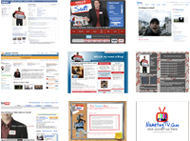 Are you a friend of The Nametag Network?
Are you a friend of The Nametag Network?
Read more blogs!
Rent Scott’s Brain!
Download articles and ebooks!
Watch training videos on NametagTV!
Make a name for yourself here…
 1. “If you build it, they will come.”
1. “If you build it, they will come.” 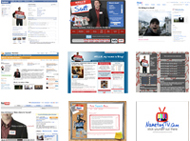 Are you a friend of The Nametag Network?
Are you a friend of The Nametag Network?
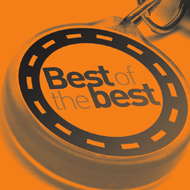 Be clearly superior.
Be clearly superior.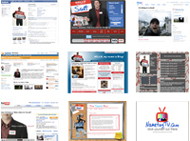 Are you a friend of
Are you a friend of  1. A customer is someone who has a need.
1. A customer is someone who has a need.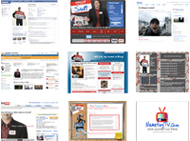 Are you a friend of
Are you a friend of  1. Lists are easy to read.
1. Lists are easy to read.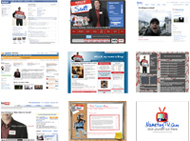 Are you a friend of
Are you a friend of  The most common piece of criticism I receive is:
The most common piece of criticism I receive is: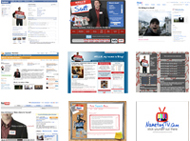 Are you a friend of
Are you a friend of  “Hey Scott, why do you choose to wear the simple, hand-written, first-name-only nametags? Why not get something more customized and permanent?”
“Hey Scott, why do you choose to wear the simple, hand-written, first-name-only nametags? Why not get something more customized and permanent?”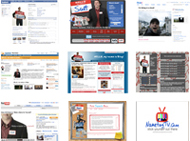 Are you a friend of
Are you a friend of 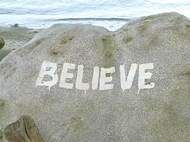 I don’t believe in MARKETING.
I don’t believe in MARKETING.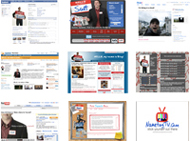 Are you a friend of
Are you a friend of  1. The Paradox of Choice. There are more choices than ever before – approaching infinite. So, people are just going to pick the best choice. Often times, it’s the first choice. Are you at the top of the list?
1. The Paradox of Choice. There are more choices than ever before – approaching infinite. So, people are just going to pick the best choice. Often times, it’s the first choice. Are you at the top of the list? Are you a friend of
Are you a friend of  Today is day 2,500!
Today is day 2,500!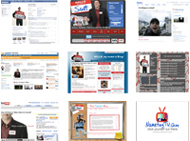 Are you a friend of
Are you a friend of  A few months ago I was giving a speech to a group of hotel employees in
A few months ago I was giving a speech to a group of hotel employees in 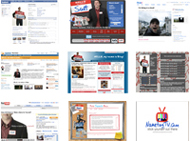 Are you a friend of
Are you a friend of